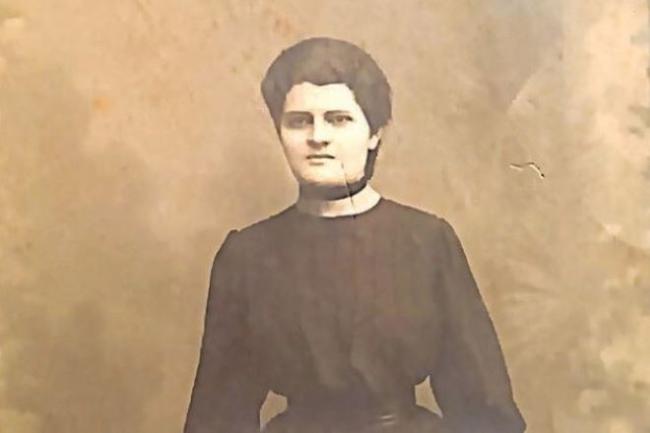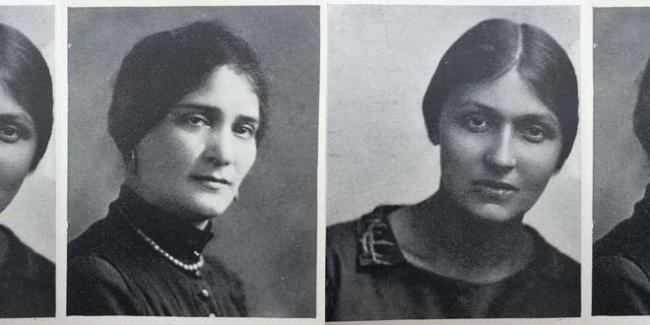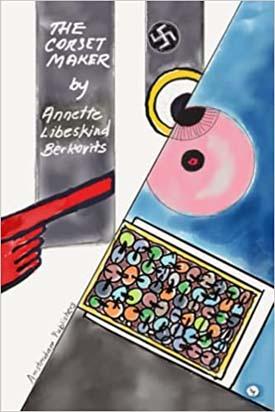Weekly Reader: A Room of One's Own
“A woman must have money and a room of her own if she is to write fiction.” So Virginia Woolf famously wrote in her essay “A Room of One’s Own.” Woolf’s argument—that women’s creativity was restricted not by some inherent quality but by economic and social forces penning them in from all sides—was revolutionary in its day and remains important and influential in our own. If the British women listening to Woolf’s lectures at the University of Cambridge suffered from those problems, immigrant, Yiddish-speaking women in the United States experienced them even more. But as Aretha Franklin once sang, “Sisters are doin’ it for themselves.” While the history of Yiddish literature has had its share of feminist men, it was more often women who fought for their own status and position, whether socially, culturally, or economically. Such women rarely got the recognition they deserved in their lifetimes; the least we can do is give it to them now.
—Ezra Glinter
Ignored in Two Languages

Though Rokhl Faygnberg was a prolific writer in multiple genres—novels, short stories, reportage, essays, a play—she has fallen into obscurity like most women who wrote in Yiddish in the early twentieth century. They were neglected because, as Anita Norich has argued, they wrote mostly for periodicals; their fiction was serialized in newspapers rather than published in the more permanent form of books. But Faygnberg did publish books, and as translator Elissa Bemporad suggests, on top of just plain old sexism, Faygnberg’s ardent shift to Hebrew when she settled permanently in Palestine in 1933 may have led Yiddishists to neglect her.
Read about the neglected career of Rokhl Faygnberg
A Salon of Their Own

Among hundreds of items in the Bertha Kling archive at the YIVO Institute in New York, one small Kodak print caught our eye. A black and white snapshot, with a handwritten date on the back—July 8, 1959—shows Bertha and Yekhiel Kling with two other women. One of them is Kadya Molodowsky, one of the most renowned Yiddish writers of the twentieth century. What was the connection between Molodowsky and Bertha Kling, a poet and host to the most celebrated Yiddish literary salon in New York? What is revealed in this moment of intimacy? And what—in terms of the role of these writers in shaping a modern Yiddish literary culture in Europe and America—is unseen?
Read about the relationship between Kadya Molodowsky and Bertha Kling
The Great Kosher Meat War

In the early hours of May 15, 1902, three thousand Jewish women quietly took up positions on the streets of Manhattan’s Lower East Side. Convinced by the latest jump in the price of kosher meat that they were being gouged, they assembled in squads of five, intent on shutting down every kosher butcher shop in New York’s Jewish quarter. Scott D. Seligman’s The Great Kosher Meat War of 1902 tells the twin stories of female immigrants who discovered their collective consumer power and of the Beef Trust, the midwestern cartel that conspired to keep meat prices high. With few resources and little experience, this group of women organized themselves into a potent fighting force and successfully challenged powerful, vested corporate interests.
Listen to a lecture about The Great Kosher Meat War
The Corset Maker

The Corset Maker, a recent novel by Annette Libeskind Berkovits, tells the story of a Parisian count, a Moroccan arms smuggler, and an orphaned Spanish boy who test the convictions and tug at the heart of Rifka Berg, a young Jewish corsetiere from Warsaw. Inspired by Libeskind Berkovits’s mother and close friends, all women of immense courage and integrity, Rifka’s personal struggles and dilemmas go to the heart of the major ethical issues and challenges of our times.
Listen to a podcast interview with Annette Libeskind Berkovits
